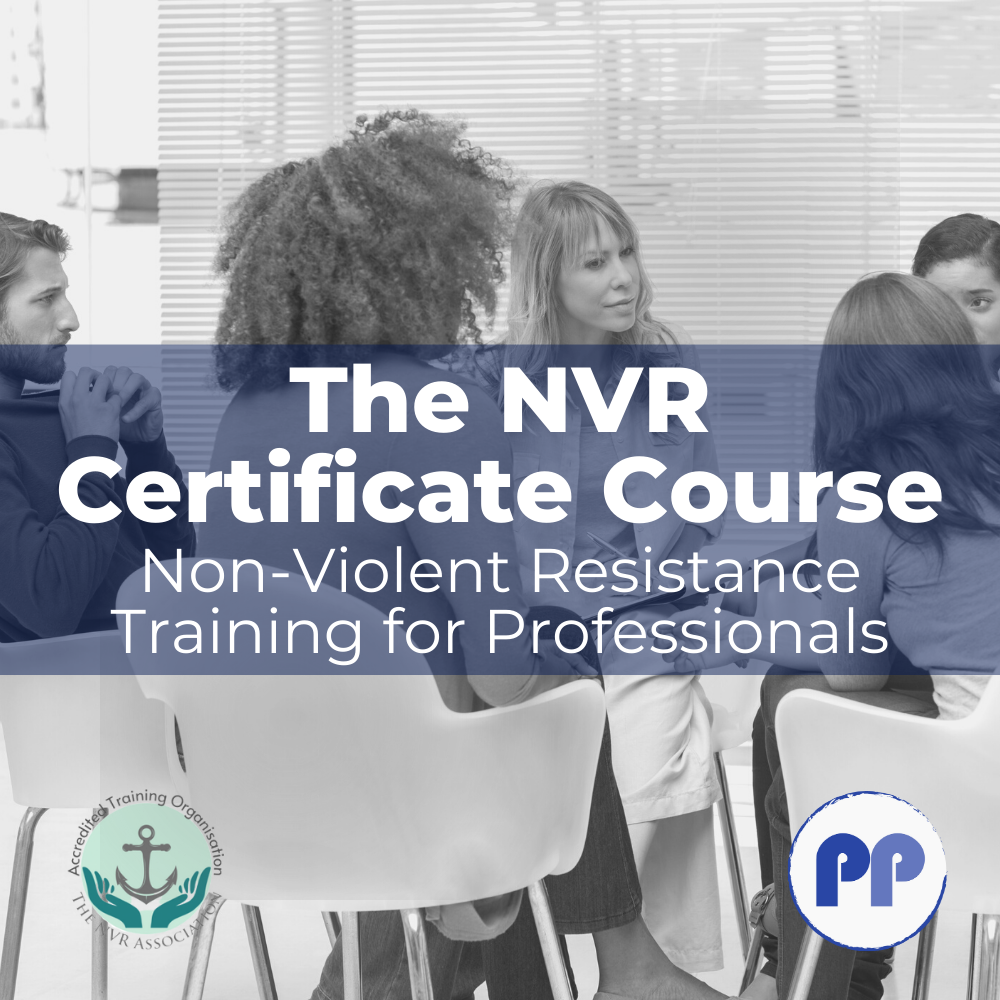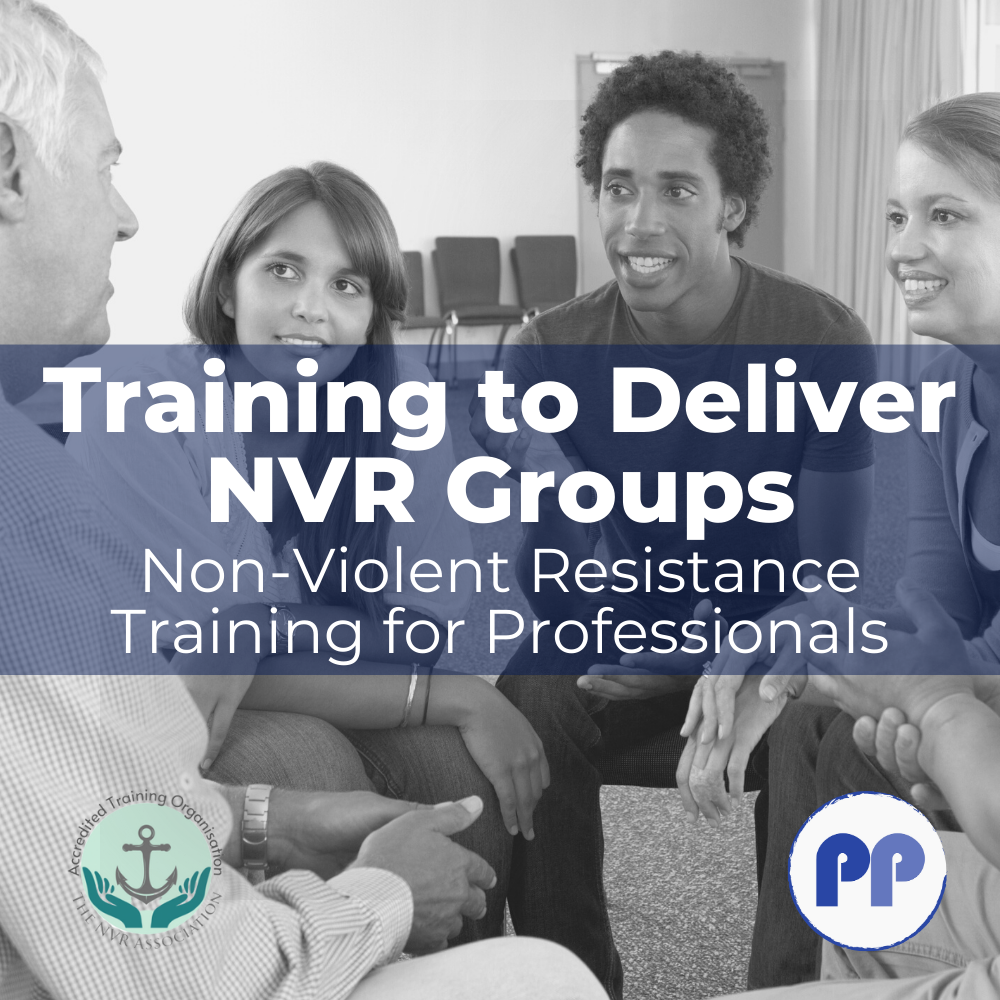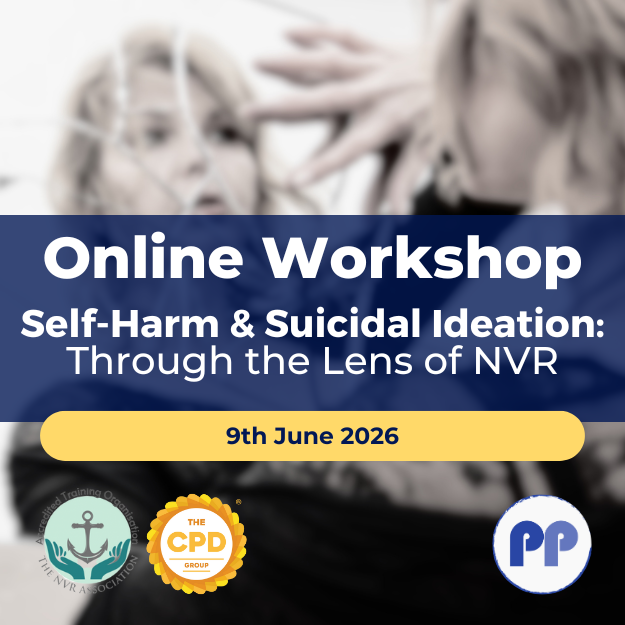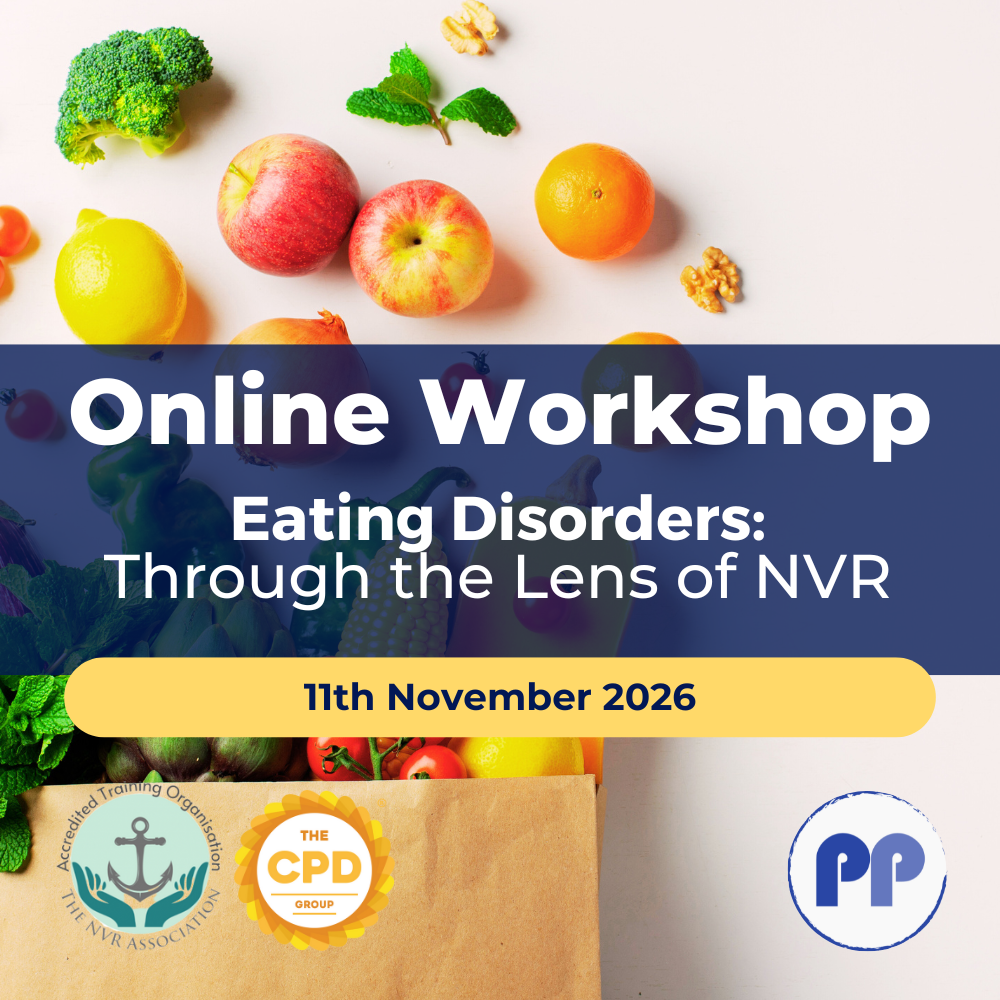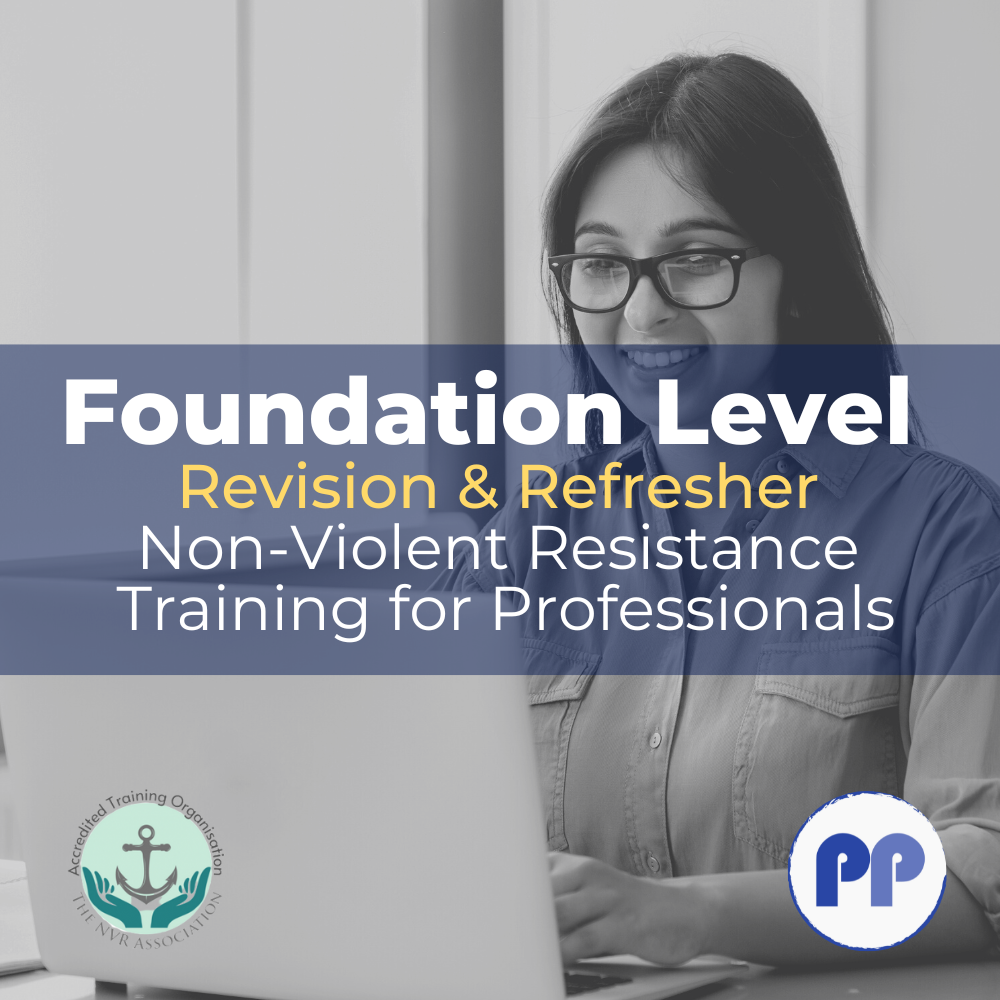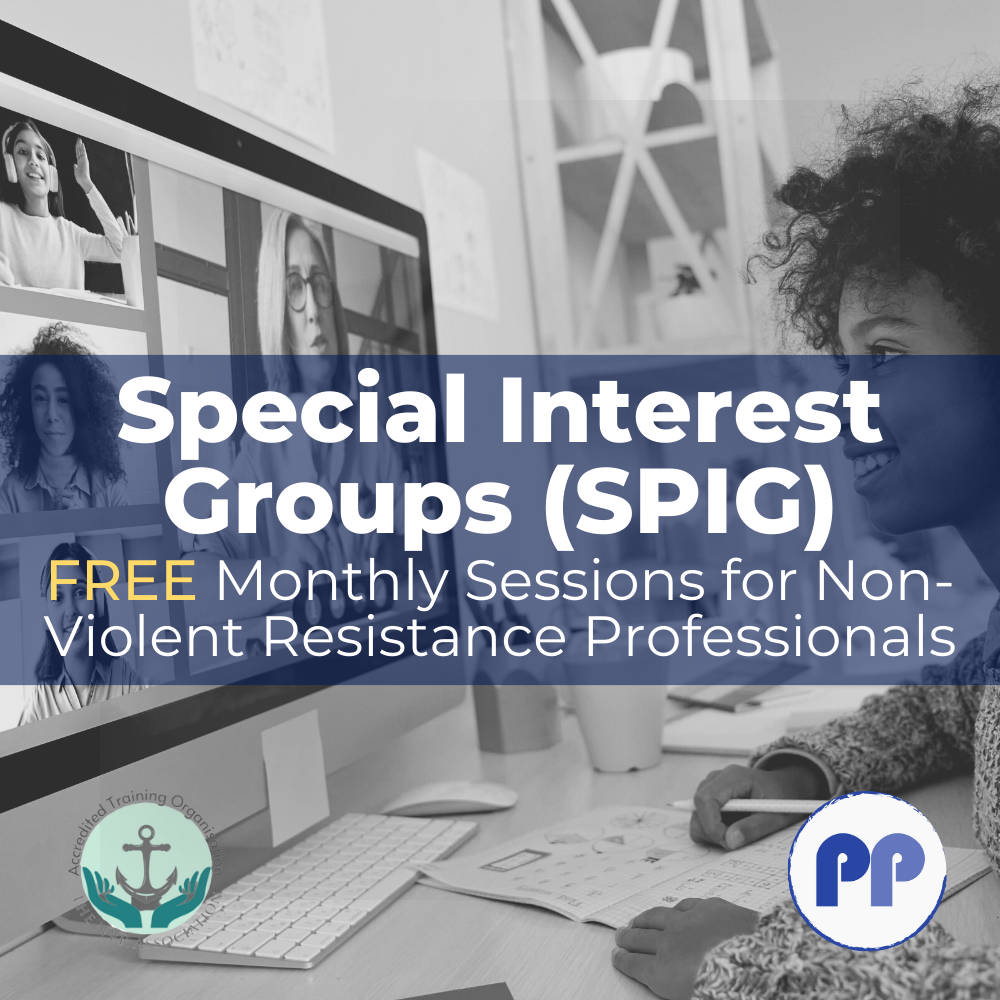Neurodiversity and Learning Disabilities: Through the Lens of NVR
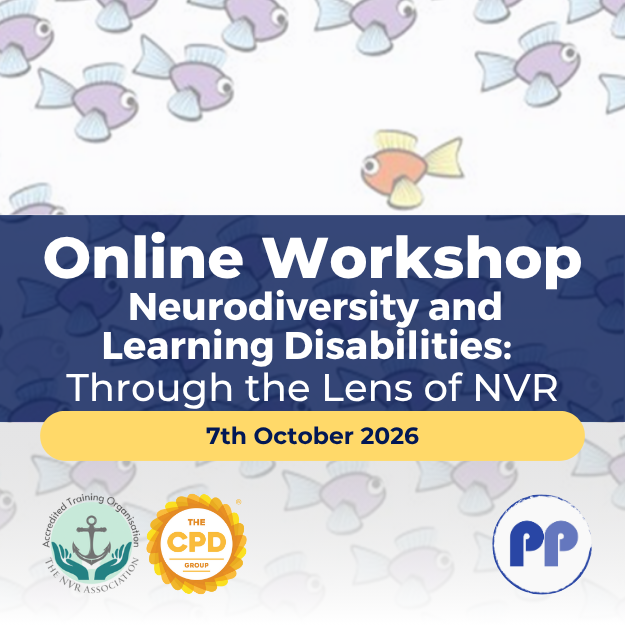
Neurodiversity and Learning Disabilities: Through the Lens of NVR
Train with the leading & award-winning provider of Non-Violent Resistance Training for Professionals
Next Workshop: Wednesday 7th October 2026
Join our exclusive one-day online workshop with Dr. Hannah Moore, ‘Neurodiversity and Learning Disabilities: Through the Lens of NVR’
The workshop will be brought to you LIVE online via Zoom on Wednesday 7th October 2026, and is open to NVR Professionals.
About the Workshop
My experience of using NVR with families of children with Learning Disabilities and Neurodiversity has been that it has provided a framework to support families to navigate to a position of strength and parental legitimacy in the face of trauma, adversity and aggression. Dominant narratives within the system context for children with neurodiversity and learning disabilities typically focus around the notion that the destructive behaviour of a child is a result of a disorder or problem within them, leading to the dominance in the field of problem saturated terminology, including: ‘challenging behaviour’. In such a system, it can be so hard to feel legitimacy in naming violence. This can impact parental anchoring, especially influencing capacity to resist, with many parents identifying with patterns of accommodating around their child’s anxiety, aggression and control. Erasure and feeling powerless to effect change can be common experiences of parents of children with neurodiversity and learning disabilities. In my experience, NVR provides the opportunity to influence the shame of experiencing violence as a parent rather than feel paralysed by it.
In this workshop we will think about how NVR can help reframe narratives that are limiting within this population, building on strengths. We will think about how labels such as Autistic Spectrum Condition, ADHD and Learning Disabilities orientate the system, exploring what possibilities can be created by ‘thickening up’ other more marginalised narratives. This is considered in the context of key factors that orientate services of children with neurodiversity and learning disabilities, including, social isolation and risk. A ‘road map’ incorporating the cornerstones of NVR, is introduced as a way of enhancing parental legitimacy and overcoming the experience of erasure and powerlessness.

The flow of life for parents with children with learning disabilities and neurodiversity
Learning Outcomes:
- Proficiency in utilising and adapting NVR principles for children and young people with Learning Disabilities and Neurodiversity
- Developing confidence in the LD and ND workforce: in line with the LD Improvement Standards (NHS England, 2018) focus on having the right workforce and skills to meet the needs of people with learning disabilities
- Developing NVR skills-based practice: consistent with the LD Improvement Standards (NHS England, 2018) focus on least restrictive practices
- Building an NVR community around specialist areas of work
- With increasing demand on services to support the needs of neurodiverse young people, developing resilience in the workforce where the intensity and severity of presenting issues can lead to burnout
The Statistics:
Approximately 2.5% of children in the UK are believed to have a learning disability (Public Health England, 2016; Office for National Statistics, 2024). National Institute for Health and Care Excellence (NICE 2024) indicates that prevalence rates for people with learning disabilities to develop ‘behaviours that challenge’ is approximately 5-15% in educational, health or social care services. Rates are higher in teenagers, people in their early 20s and those in hospital settings.
It is estimated that 15-20% of children and young people in the UK are neurodivergent (National Statistics, 2023):
Approximately 1-2% of young people aged 10-24 have Autism Spectrum Condition (ASC) (NICE, 2024).
Whilst the proportion of males to females with a diagnosis of ASC varies across studies, a greater proportion of males are diagnosed, with rations ranging from 3:1 to 5:1. This is largely thought to be due to traits in females being under-reported, therefore, under-diagnosed (SIGN, 2016), as well as, the prevalence of females camouflaging difficulties and ‘fitting in’ with society’s expectations.
Recognising the variation in terminology used, and that the term encompasses several different behaviours, ‘behaviours that challenge’ often co-occur at high rates among those with ASC, and, are more common in people with ASC and a learning disability than in individuals with a learning disability alone (Matson & Rivet, 2008).
An increased prevalence of stress has been found among parents of children with ASC compared with parents of typically developing children (Negi et al., 2024).
NICE (2025) estimates the global prevalence of ADHD in children to be around 5% in the UK. However, it is recognised that this is likely to significantly underrepresent the number of children seeking and waiting for a diagnosis of ADHD.
What do people say?
Reviews:
NDLD
The trainer was excellent and has given me lots to think about and apply. The regular break-out group discussions were helpful. Thanks!
NDLD
Thanks for the training
NDLD
I like the discussion around stages of attention and vigilant care.
NDLD
It was a powerful workshop and has given me the confidence and the tools to support parents of children who are neurodiverse and have learning disabilities.
NDLD
I liked the discussions around the differences around using NVR when working with children who are neuro divergent
NDLD
Liked the emphasis on connection and language used by Hannah. Working with young people with moderate to profound ID – most helpful was section about reconciliation gestures, play and intensive interaction
NDLD
Training was informative and helpful
NDLD
Very useful for a beginner but happy that I have others in my organisation that are trained in all levels as a lot to take on board
NDLD
well balanced – listening, discussions, breaks
NDLD
I liked the NVR road map parental legitimacy
NDLD
I’m enthusiastic to develop my NVR practice and bringing more resistance to the systems we support
NDLD
I liked that it was thought provoking and gave me some ideas on how to approach NVR with families who have a child with an ID or Autism
NDLD
well paced and coherent presentation. Helpful to be able to think about NVR and young people with neuro diverse conditions specifically. Helpful to think about some of the more difficult aspects of working with NVR. It reminded me that we are very constrained from doing a thorough job due to time and organisational constraints
NDLD
I enjoyed a new way of thinking to NVR and how how it is adapted for children with additional needs and how this will work best for them
NDLD
Hannah was a really good trainer and very informative
NDLD
Enjoyed all of it. Very stimulating and linking to my work as NVR supervisor and Group facilitator.. would ask for reconsideration of being sent slides.. So much to reflect on ..2 pages does not do it. Feel it. Should be part of the cost. Would always and will be quoting /sharing Hanna. thank you
NDLD
Hannah’s ideas and explanation were really clear and appropriately pitched to experienced NVR practs – thank you
NDLD
Hannah’s experience is really valuable
NDLD
I found the day very helpful and thought provoking
NDLD
The trainer was really knowledgeable and experienced, that brought it to life for me and helped me to think about my own work. I really loved the inclusion of things like poetry and references to other work or models to get me thinking
NDLD
Just thank you for a brilliant training!
NDLD
Lots of useful ways to adapt and use NVR to meet the needs of this group. Lots of breaks. Lots of grouo discussion.
NDLD
Really interesting and informative.
NDLD
Pausing to reflect and being able to ask some questions was useful, however a few too many breakout exercises for me.
NDLD
Enjoyed the day thank you
NDLD
Really knowledgeable presenter who made the ideas really accessible and with immediate practical application possible
NDLD
So useful to this population and really helpful in thinking how to apply NVR to the people I work with
NDLD
Really enjoyed the day and the effort that went into the day and a special thank you to Rose who got me into the training last minute due to payment issues from my organisation!
NDLD
Great training, really informative. lots for me to think about! thank you Hannah and PartnershipProjects
NDLD
I liked the repeated threads of parental legitimacy and bringing into consciousness throughout each of the sections. Good pace of delivery and number of breakout opportunities
NDLD
Excellent structure to the training and the fact that it aligned so well with NVR principles stimulating my thinking about my practice
NDLD
very well put together training that really has made me think about my own practice
NDLD
Very well thought out and well organised by Hannah. I liked that her adaptations of NVR stem from her practice. Her work is very inclusive and respectful and as such it was a real pleasure to listen to her as she uses language so carefully.
NDLD
Very enjoyable and Thank-you to all concerned
NDLD
In depth look at parental positions – establishing the kind of parent you want to be
NDLD
Really refreshing to see NVR specifically used for this population young people and families. The road map was really helpful. Also affirming that things I am already doing have commonality amongst others
NDLD
Really informative. Hannah was extremely knowledgeable. Pace was good and thoughtful. Thank you
NDLD
Lots of opportunities to discuss practice and evaluate this.
NDLD
I enjoyed the presentations
NDLD
Hannah spoke very clearly which was good as I have a hearing impairment. The content was very thorough and included links to research and resources There were plenty of breaks and the content was broken up with chances for discussion. I was in various break out rooms so met various people all of whom had interesting thoughts.
NDLD
the content and delivery was accesible and applicable to my practice, as well as professionally delivered
NDLD
The adaptation of NVR into a disability based care setting i’ve long been looking for. very relevant to my practice, and came away with lots of ideas and lots of points to discuss as a team
NDLD
I liked the application of NVR to the ND context. “Establishing the kind of parent you want to be” was the most thought provoking section for me -Especially applying Vigilant Care in this context.
NDLD
Hannah is impressive. Clearly knows her stuff and continued to be present, effective and efficient. Brilliant communicator. Held space well. Present. Can’t believe she spoke to a screen all day single handed. Truly BEING NVR. A fantastic master class for partnership projects. I hope the eating disorder one is of a similar vein and that more are forthcoming. Would love to see something around NVR with looked after children or maybe NVR in schools. Thank you for continuing to support the NVR community with high quality support!
NDLD
Reinforced my knowledge and practice of NVR, plus gave me some news ideas of working current parents.
NDLD
Enjoyed it all
NDLD
Thank you for today’s training.
NDLD
Enjoyed seeing Hannah’s adaptations and although not new concepts, was presented in a different way which stimulated thinking. Great resources. Would’ve liked copies of pp. Thankyou
NDLD
Was great
NDLD
Enjoyed connection before correction Connection first before de-escalation
NDLD
Helpful to link NVR and Asd
NDLD
Rich discussions, ideas from trainer’s own clinical experience, built on knowledge base
NDLD
Really enjoyed the day/workshop
NDLD
Really thoughtful questions asked to stimulate discussion and consideration for practical application
NDLD
Liked the examples and inspirational resources such as poems
NDLD
Good ideas, pictures, discussion
NDLD
Great content. Thank you.
NDLD
Enjoyed all of it, pacing, order,
NDLD
Very well presented material and inspiring conversations
NDLD
Good knowledge, referral to research/teaching with references
NDLD
The training was very helpful to connect NVR ideas when working with neurodiverse children
NDLD
I liked the practice examples, connections to real life resources. Hard to sit still, but not much we can do about that!
NDLD
Great connections to clinical practice
NDLD
This all made NVR feel a little more applicable especially on a one to one basis
NDLD
Great training, should be part of the main NVR training
Meet Dr. Hannah Moore
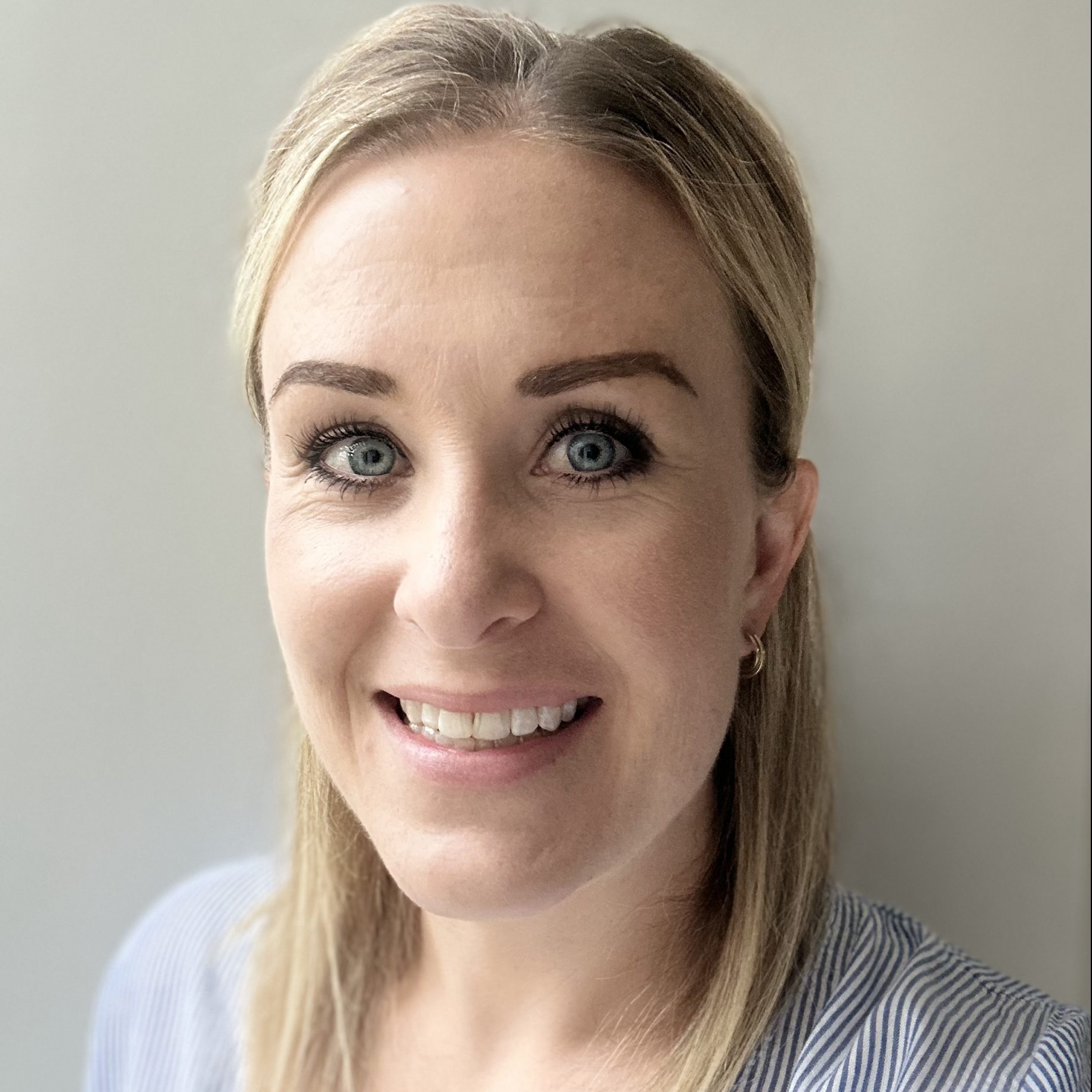
Clinical Psychologist, NVR Practitioner
NVR Association (NVRA) Accredited Practitioner and Supervisor
I am a clinical psychologist and NVR Practitioner; I am also trained in Supportive Parenting for Anxious Childhood Emotions (SPACE). I have had the pleasure of working with individuals with Learning Disabilities and Autistic Spectrum Conditions (ASC), both in adult and child settings, for over 20 years. Following my doctoral training in Clinical Psychology, I have spent the past 10 years becoming immersed in children’s services, specialising in working with children with Learning Disabilities and ASC across Child and Adolescent Mental Health Services (CAMHS). I am currently the clinical lead for CAMHS Learning Disabilities Services within my trust. I have extensive experience of working with families who have experienced trauma, adversity and violence; supporting children in care; providing consultation to the system around the child, including social care and schools, and, providing supervision.
Within my work, my focus is supporting the moving away from considering the problem as located within the child, to understanding problems as existing (and maintained) in the interactions between individuals, taking a strengths-based focus, as well as, identifying solutions within the child and family context. NVR enables one to challenge the commonly held beliefs that ‘challenging behaviour’ for children and young people with Learning Disabilities and ASC is inevitable and supports parents to feel legitimacy in naming and resisting violence. Frequently many parents name how NVR has given them ‘permission’ to do things differently when dealing with aggression and control from their child. The anchoring function of focusing on the relationship in NVR has enabled the opening up of different perspectives on, and approaches to, the ‘problem’, moving away from a ‘disablist narrative’ and the dominant story of ‘challenging behaviour’ that is limiting.
Important Information
How much does it cost?
Price:
Early Bird Tickets*: £135+VAT
*For tickets purchased before the 31st August 2026
Full Price Tickets: £150+VAT
Includes joining link to the full workshop LIVE online, Digital Slides, Q&A and Networking Opportunities
When & Where?
When:
Wednesday 7th October 2026, 9:30am to 4:30pm (with plenty of breaks)
Where:
Hosted LIVE online via Zoom Pro
Who Can Attend?
The workshop is open to practitioners in CAMHS, mental health, social care, education, youth justice and the independent sector, who already have an understanding of the core principles of NVR.
The workshop is suitable for practitioners working with clients who have one/some of the following; Neurodiversity, Learning Disability, Intellectual Disability, Special Educational Needs (SEN), Autistic Spectrum Condition (Autism), Attention Deficit Hyperactivity Disorder (ADHD), Dyspraxia, Co-morbidity (where there are multiple co-occurring conditions), etc.
Also available for Group Bookings, contact us today for a free no-obligation consultation & quote.
Email: training@partnershipprojectsuk.com
Why train with us?

Established in 2006
The first & foremost specialist provider of NVR training & workshops, supervision, and interventions & coaching in the UK

The leading provider in the UK
We've trained more professionals, & supported more families than any other provider

Highly Qualified Trainers & Coaches
Our team hold the highest NVR qualifications available, along with many years’ experience & specialist knowledge

Award Winning
Winners of several prestigious awards such as 'Training Provider of the Year' 2025, and ‘Best NVR Training & Intervention Provider 2025 – UK’

Giving Back to the Community
We give our time with our special interest groups, offer pro-bono work where we can, and donate to relevant charities

Over 1000 Professionals trained each year
Over the last 3 years we have trained over 3000 people
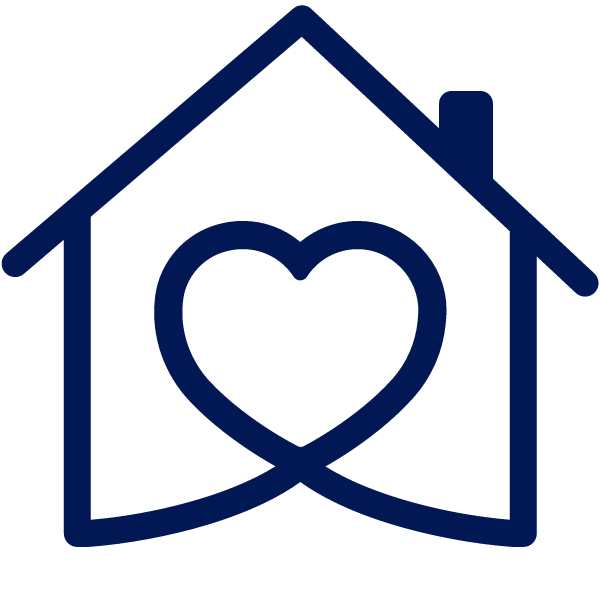
Over 100 families supported each year
Each year we offer individual coaching & group sessions for over 100 families
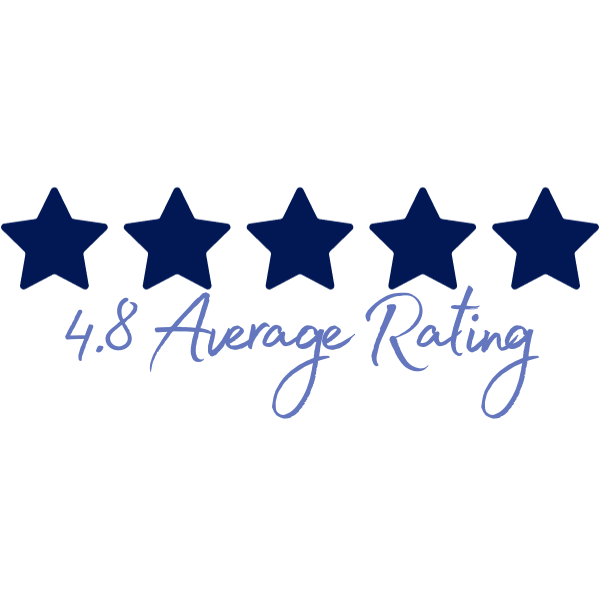
4.8 Star Average Rating
Amazing feedback and the highest scores for our NVR training

Our company is certified
We are registered with; CPD, Independent Safeguarding CIC, NVR Association (NVRA)

Global Reach
Although we are predominantly in the UK, we have a worldwide reputation with students in many countries around the world
Confidentiality
PartnershipProjects UK (PP) adheres to its confidentiality obligations at all times.
PP encourages all professionals (who may be undertaking any level of NVR training, accessing NVR individual or group supervision, submitting their coursework or attending PP’s accreditation module) be bound by their professional registrations or their service/local authority/organisation policies of confidential working practices.
In all cases, professionals will anonymise any family/parent references, in all cases change genders/ages/status’s when referring to case work examples in training/supervision etc.
Professionals who wish to share families personal information (names/gender etc) in their individual or group NVR supervision must be transparent and inform the families/parents/caregivers before sharing. In this circumstance, professionals must have formal written consent/permission from families/parents/caregivers to use their examples in this way.
Any information shared to PP, will be treated in line with current GDPR guidelines as per our Data Protection Policy which can be found on the following link; https://www.


